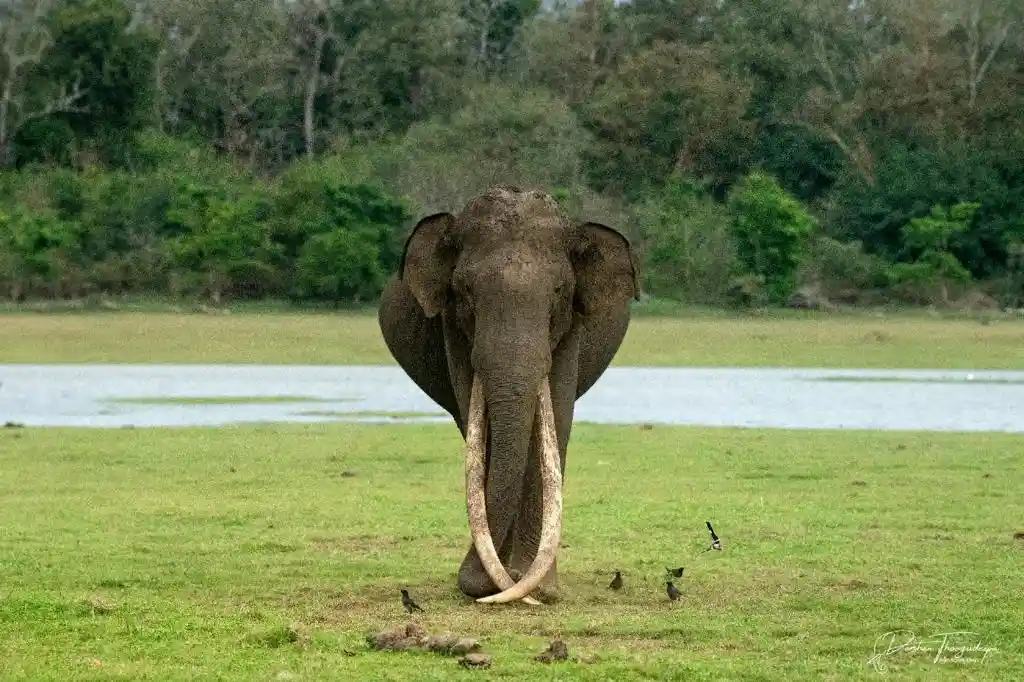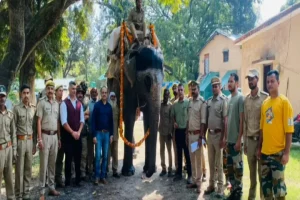It was indeed sad news for wildlife enthusiasts, especially elephant lovers, as Bhogeshwar, the tusker with the longest tusks among the Asian elephants passed away. The Forest Department officials told the media that Bhogeshwar was found dead in the Gundre Range of Bandipur Tiger Reserve, Karnataka.
Majestic Elephant no more. One of the longest Tusks in asia, Bhogeshwar aged 60 died of natural causes.#RIP #elephants #Karnataka #bandipur #forest #wild #wildlife #Jungle #green #nature #Safari #mysore #Bengaluru #Trending pic.twitter.com/BASK0NnfM2
— Kiran G, I.F.S. (@trulykirang) June 12, 2022
According to the officials the tusks of the elephant measure 2.58 metres and 2.35 metres.
The sixty-year-old Bhogeshwar was the pride of Nagarahole and Bandipur Tiger Reserves and this animal with huge and frightening tusks was gentle and one of most popular animals for the Kabini backwaters tourists.
While the Director of BTR told the media that Bhogeshwar’s autopsy confirmed that the cause of his death was natural and that he had no marks of injury, news is doing rounds that the animal’s health deteriorated after he had a skirmish with another tusker.
Proceeding according to rules and regulations of the Ministry of Environment, Forests and Climate Change, the jumbo’s tusks were removed and sent to Mysuru depot while the body has been left for vultures keeping in line with the tradition of the Forest Department in case of dead wild animals found in the forests.
The magnificent tusks of Bhogeshwar were crossed towards the end, they never troubled him while eating, swimming or splashing around in the Kabini backwaters.

Forest officials and locals bidding farewell to their favourite elephant (Pic. Courtesy Twitter/@MysuruCity)
This tusker was named by the locals and Forest Officials as Bhogeshwar as he was very frequently sighted near Bhogeshwar camp, a place where an anti-poaching camp and temple is located.
A forest official said many tourists were thrilled to see Bhogeshwar even if they were unable to catch sight of a tiger in Kabini. The tusker has also featured in several wildlife documentaries and films made by the department and some private organisations.




















